Well, I started work at the BBC as a radio producer in 1985. I was taken on to make investigative environmental programmes, of which there weren’t any at the time. I spent the last year and a half at university hammering on their doors and I got the post with the words: ‘you’re so fucking persistent you’ve got the job’.
It was all going incredibly well until Thatcher launched her coup against the BBC in 1987. The BBC had been probing deep into some of the machinations of government, particularly with its Secret Society series and a programme called Maggie’s Militant Tendency. It was doing what a national broadcaster ought to be doing.
But, unfortunately, government has ultimate power over the BBC. Thatcher swept in, and sacked the Director-General Alasdair Milne. On the day that Milne was sacked, my boss came in and said that there were going to be no more investigative programmes.
I was a young man of twenty-four when the coup happened. I had already been working on what I had intended would be a radio series investigating what was happening in West Papua, where Indonesia was moving vast numbers of people from Java and Bali onto the outer islands, including this annexed state of West Papua. Basically, Suharto was using the Javanese and Balinese to displace the indigenous people and create a sort of monocultural state that supported his dictatorship, and so to assert control over this vast archipelago. This was accompanied by devastating environmental destruction and, in some cases, genocidal killing and every imaginable form of brutality.
I rang my old friend Adrian Arbib, the photographer, and said that I had just got a contract to go to Indonesia and West Papua, and that it would be extremely dangerous. He said ‘yes’. I said: ‘I haven’t asked you a question yet’. He said: ‘the answer is yes!’
“‘You’re so fucking persistent you’ve got the job’”
And so, the two of us—who were greatly under-qualified and under-resourced—found ourselves in this fantastically perilous situation. Two previous journalists who had tried to do a similar thing had both been killed there.
The only way of getting in was on a special government permit, and we just couldn’t get this permit. What eventually happened was that, after many days going backwards and forwards to the central police station in Jakarta, I was walking down the corridor one day looking for a glass of water when I saw this door which was ajar that said ‘Head of Immigration Police’.
So, I thought I’m just going to go in and talk to the man himself and see if I can persuade him. I knocked on the door but there was no answer. I pushed the door open and there was no one there. But on the desk was a pad of headed notepaper and a stamp. I thought: ‘okay, here’s my chance’. So I stole them.
With the help of an Indonesian friend, we wrote ourselves a letter of introduction saying that if anyone messed with us, they would have to come to this man in Jakarta. And it got us out of and into a lot of trouble. It got us through various army and police blocks. But there was one point at which they just didn’t believe us. They didn’t believe the letter. This guy just kept shaking his head. They took us into custody while they spent three days trying to make radio contact with Jakarta to check out whether we were bona fide. My hair was coming out in clumps. It was a very frightening period.
They couldn’t make radio contact, and so eventually they just let us go. I had really thought we were going to be shot at that point. The only way to get to where we wanted without getting caught was to walk over the mountains and canoe through the swamps. This took three or four weeks of getting lost in the forest and running out of food, eating stick-insects and rats, getting swept away down a mountain river, and stung almost to death by hornets. It was an adventure. But we got the story.
Was it in Brazil that you read a story in a newspaper about your own death?
That’s right, yes. On the basis of my book on West Papua, I got an advance to go to Brazil and do a similar thing looking at land expulsions and the resulting mass movements into the Amazon.
First of all the story of my death appeared in the local newspaper in Maranhão, but then it got picked up by Folha de São Paulo.
I got beaten up by the military police when I was investigating the land-grabbing that was going on in the state of Maranhão. The human rights lawyers whom I was working with told me to leave the state immediately. They told me to leave on the night bus because the police would come after me, and might kill me. One of them must have said something to someone else, which started a rumour.
It got into the local paper as me being found garrotted behind the police station in the town of Bacabal. This was picked up slightly more cautiously by the Folha de São Paulo, which said: ‘it is believed that…’.
“I got beaten up by the military police when I was investigating the land-grabbing that was going on in the state of Maranhão.”
So, I took the bus back overnight, and eventually got to Manaus where I was living. The following day, I went into the office of a group that defends indigenous people and land rights. The man who had set me off on that particular investigation was talking on the phone.
He passed the phone over and said that it was Jan Rocha from the Guardian. I didn’t know her at the time. She said: ‘I don’t know if you can help with this but I’m investigating a British journalist who had been killed in Maranhão. It sounds like he was killed by military police’. I said: ‘I’m not surprised, they’re total bastards. They beat me up as well’.
She said: ‘yes, one report said that he was found garrotted behind the police station in Bacabal’. I said: ‘Bacabal! That’s extraordinary, that’s where I’ve been! If I had known there was another British journalist, I could have teamed up. But this is terrible! Who was this person?’ She said: ‘I’m not sure how to pronounce his name, I think it’s George Mon-biot’. I said: ‘Ah. I think that story might not be entirely accurate…’
Would it be accurate to say that, since these early days in West Papua and Brazil, the environment has been one of your abiding concerns?
It is one of them, but I see myself as embedded in a wider circle of concerns, all of which are linked. So, whether one is talking about environmental destruction, social justice, human rights, corporate power, neoliberalism, international power, and cultural power, it all meshes. I guess what I was doing in those six years abroad was educating myself, because I had a very conservative education.
You studied zoology?
I did. Zoology teaches you about the wonders of the living world, but it doesn’t teach you anything else. I was extremely frustrated as a student that my course was so narrow. I wanted to know about philosophy, history, literature and politics.
There were so many other issues, but we were living in a specialist bubble. I think it’s crazy when you’re that young to have to narrow your interests so severely. So, I came out of this elite education knowing almost nothing of the world. Slowly, both through experience and reading during those six years, I began to develop some inkling of an understanding of the world. But that process of education continues to this day.
“Zoology teaches you about the wonders of the living world, but it doesn’t teach you anything else.”
After six years abroad, I had a powerful urge to come home and start applying some of what I had learnt. As it happened, just as I did come home, the roads protests were kicking off in the UK. A friend persuaded me to come to Twyford Down and see what was going on there. I began to realise the links involving land alienation and the overriding of local people’s will, with what I’d been studying abroad.
I began to understand that the only fundamental difference between what I’d been seeing abroad and in my own country was that the things to which I had been witness—the mass brutality, land alienation and killings—had happened earlier in Britain. I began to understand Britain for the first time, as a result of my experience abroad. And, ever since, my task has been to try to apply that understanding to our own situation.
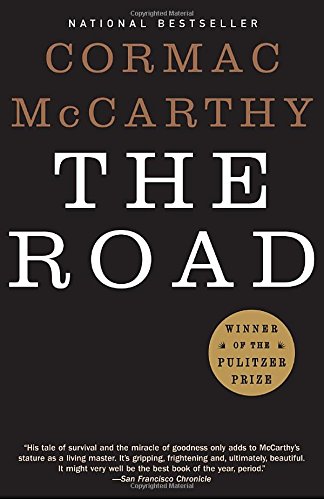
Buy
I was intrigued that one of the books you chose was a work of fiction: Cormac McCarthy’s The Road.
I think this is possibly the most important environmental book ever written. It is a thought-experiment that imagines the world without a biosphere. That is the fundamental thought-experiment at the heart of environmentalism.
All the horrors of that story arise from the disappearance of the biosphere, leaving people without any means of feeding themselves and without any means of survival. They are thrown into a brutal and fatal competition where the only thing left to eat is each other.
As both a thought-experiment and a metaphor, it is incredibly powerful and valuable because it reminds us that without the biosphere we have nothing, we are nothing and we can do nothing except to tear each other apart. By describing such a scenario, it reminds us of just what a precious and magnificent thing we have in the living world.
“I think this is possibly the most important environmental book ever written.”
If I were to compile an environmental reading list for anyone, the first book I would give them to read would be The Road because that is the Ground Zero of environmentalism. It imagines the extreme scenario of losing everything. The consequences are conveyed with McCarthy’s brilliant sparseness and starkness, and his total refusal to offer hope where there is no hope.
By contrast, the film version of The Road did try to offer some shreds of hope in an entirely hopeless situation. As such, I felt it was dishonest.
I thought that the opening scenes in the film, which show desolated landscapes and expanses of felled trees, convey this idea of the destruction of biosphere particularly powerfully.
In many ways it was a great film. The cinematography was astonishing. But it was not true to the book, because it kept trying to offer us glimpses of hope and a way out, whereas McCarthy is saying that there is no way out.
I felt that the ending of McCarthy’s novel was completely misunderstood by the film. I saw the ending of the novel as looking back to what had been lost. You can’t conceive brook trout from nothing. If there are no trout then there can be no trout. It is this contrast which is moving and terrible.
By contrast, in the film the ending became a message of hope and renewal. Yet there would be no chance within any human span of hope and renewal. In hundreds of millions of years, perhaps, the biosphere could return. After the Permian–Triassic extinction, it was tens of millions of years before marine biodiversity got back to what it was. It happened eventually but it would not happen again during the period in which humans were extant on earth, especially if we had lost the biosphere.
So, the film ending was a cop-out in that respect. But it almost had to be because McCarthy is so uncompromising: it’s almost too much to bear.
Is apocalypse a useful paradigm for thinking about environmental damage?
There are many different versions of apocalypse, both religious and secular. And there are various environmental situations that readily lend themselves to apocalyptic description.
Think of the Iraq War, which played out in a post-apocalyptic landscape. This was the cradle of civilisation: the very first cities and the very first agriculture began there in Mesopotamia. The British zone is where the Epic of Gilgamesh was set. There were a series of extraordinarily rich, diverse civilisations that had existed in what is now a grey desert littered with the burnt out remains of Saddam Hussein’s tanks.
Every one of those civilisations has been completely erased, but for certain archaeological artifacts and the odd mound sticking out of the desert. All of them have been destroyed by a combination of environmental change and human agency. The primary reason was the rivers changing course: suddenly these city states had no sustenance because the rivers no longer provided irrigation for their fields.
What you see in Mesopotamian history is a whole series of civilisations rising, often lasting for many hundreds or thousands of years. The empires lasted far longer than empires do in the modern age. And you see them not just collapsing but utterly disappearing into the grey dust. If you remember back to all those scenes of soldiers fighting in the desert, they were fighting over the remains of those previous civilisations.
So, apocalypse is there in the entire history of civilisation. We live in a sort of civilizational interglacial. We live in a little period of respite from apocalypse. But in all civilisations, people forget how lucky they are to be in that respite. And through a combination of environmental change and endogenous civilisational collapse (which might be accelerated by raiders and opposing empires and armies), all civilisations eventually fall and succumb to apocalypse.
So, the idea of apocalypse as discussed by environmentalists is not some far-flung black fantasy. It’s simply what happens to everyone eventually.
“We live in a little period of respite from apocalypse.”
In the case of The Road, what makes its environmental apocalypse particularly notable is that humans take most life-forms with them. Human beings are remarkably resilient. This is one of the things that the novel suggests: everything else has gone but there are still human beings on the planet. That seems quite plausible to me: we are a highly adaptable generalist species which can survive when we have wiped out all of the specialist species and then most of the generalist species as well. And it is quite likely to come down to rats, cockroaches, human beings, and not much else.
So this could happen?
It is an extreme scenario. On the spectrum of potential apocalypses, it is the ultimate one, when you lose everything. But along that spectrum are a whole series of other losses, some of which we are experiencing at the moment: look at what’s happening to coral reefs, rainforests, ice caps, insects, and megafauna on both land and at sea.
This makes me think of the International Panel on Climate Change (IPCC) reports, and their projection of different possible future scenarios. The Road seems like a fictional imagination of one of the most extreme IPCC scenarios; even imagining such a scenario could be enough to galvanise us into acting.
Well, it should be. And I think Cormac McCarthy has done us a great service in creating that thought-experiment. It is a challenge to all the economists who say that the environment is just an ‘externality’, and that we don’t need to worry about it because the market will sort it out. Well fix that then, market!

Buy
Indeed, you selected several provocative books on economics, including Thomas Piketty’s Capital in the Twenty-First Century.
We’re at a time of crisis. We obviously face an environmental crisis but at the same time we face a political crisis, and a series of economic crises. These things cannot be separated. Our primary task in all such situations is to understand the roots of these crises.
I choose this book for two reasons. First of all, in the economic sphere, Piketty explains the economic crisis that we face in ways that also explain the political crisis. He does this by talking about the rise of what he calls ‘patrimonial capital’: wealth arising from inheritance, rent, and interest payments which greatly outweighs any wealth arising from hard work and enterprise. Patrimonial capital creates a class which is effectively inviolable: a class whose position cannot be challenged economically and therefore cannot be challenged politically.
You can take Piketty’s argument a little further and say that patrimonial capital breeds patrimonial politics. It creates a class of people who cannot ordinarily be displaced by democracy because they are able to buy their way back into power through our unreformed political-funding arrangements, the use of dark money, funding think-tanks, social media astroturfing, and sock puppetry. That solid and unredeemable core of wealth creates a solid and unredeemable power block.
When you have got an elite that is far richer than the rest of the population, they become much less amenable to political demands. And their eventual aim is to release themselves from the constraints of democracy.
Now, when you consider that these people are by far and away the most damaging people in environmental terms with their vast carbon footprints, their consumption of rare fish sushi, their use of mahogany fittings, super-yachts and private planes, and the huge demands that they make (especially with the help of their dark money funding networks) for their complete release from environmental regulations and the destruction of those regulations, you realise that the power of patrimonial capital also presents an imminent environmental threat.
“Patrimonial capital creates a class which is effectively inviolable: a class whose position cannot be challenged economically and therefore cannot be challenged politically.”
As well as offering a meta-analysis of our current crisis, Piketty provides some withering statistical analysis. The most important part of his work was his extension of the Kuznets curve to the present day. The Kuznets curve was supposed to show that inequality diminishes over time.
However, Piketty was able to show that inequality diminished in the post-war decades only because of the vast taxation of the very rich that took place. The average rates of taxation were about 80-90%. It was the Second World War followed by the rise of Keynesian social democracy on both sides of the Atlantic that eroded the position of the very rich and removed their massive economic and political power, and created more egalitarian societies.
So, there were the Trente Glorieuses (as the French call them) between 1945 and 1975 during which there was a great redistribution of both wealth and power. And then, of course, it closed up again with the new era of patrimonial capital, which now begins to resemble that of the years before the Great Depression—the first quarter of the twentieth century. We’re heading back into that territory now, with the help of a justifying ideology which is similar to but not the same as the laissez-faire ideology that led to the Great Depression. And this justifying ideology is called neoliberalism.
However, one complaint that I have about Piketty is that, while he brilliantly analyses the problems that we face, his solutions are in no way commensurate with the scale of the problem.
He calls for a global tax on inherited wealth.
Which is good as far as it goes, but it only goes ten per cent of the way towards challenging the scale of the economic and political power that he exposes.
But worse still, he has nothing to say about the environmental crisis. His solutions are all about Keynesian stimulus measures. These would actually exacerbate the environmental crisis by seeking to ensure that the rate of economic growth resumes.
This is one of the fundamental problems that we face: the two great narratives of the twentieth century—Keynesianism and neoliberalism—are the only two political narratives we still have. And there has been little effort within mainstream politics on the left and centre, since Keynes wrote his General Theory, to develop a new narrative which allows us to live in the twenty-first century in a way that benefits human beings without destroying the living world on which we depend.

Buy
Naomi Klein’s The Shock Doctrine explores what she calls ‘disaster capitalism’. What is that?
The Shock Doctrine explains some of the mechanisms by which patrimonial capital acquires power and enhances its wealth. It’s a brilliant piece of work, and one of those rare books that changes the way you perceive the world.
By showing how neoliberals, in particular, use disasters to create opportunities to extend their programme in ways that would never be accepted in ordinary circumstances because they are profoundly undemocratic and exclusive, she was able to explain a series of phenomena that we see operating all over the world.
She is able to fill in some of the gaps in Piketty’s account. Piketty demonstrates quite rightly that there is an organic momentum in patrimonial capital, in that once you’ve got money you can increase that money through what is laughably called ‘investment’.
As Andrew Sayer points out in Why We Can’t Afford the Rich, ‘investment’ means two completely different things. It means investing in creating new products, ideas and things that did not exist before, and it also means putting money into things that already exist in order to multiply that money. These are opposed meanings. The second one should be called ‘speculation’. But it disguises itself under the term ‘investment’ in order to justify the simple harvesting of rent and interest payments.
“This is a brilliant piece of work, and one of those rare books that changes the way you perceive the world.”
Klein shows that the organic momentum of patrimonial capitalism is greatly enhanced by being extended through the doctrine of capitalising on crises, which is what neoliberal advisors, governments and corporations have been doing from Iraq to New Orleans.
They move in and hit any place that has suffered from catastrophic disruption as hard as they can with a whole series of new policies that people are in no state to resist. These policies basically involve transferring public or generally shared wealth into the hands of a private elite.
We saw something very similar in the UK following the financial crash—a financial crash caused by the neoliberal policy of the deregulation of the banks—which was used to enhance neoliberal policy. While we were reeling, George Osborne and others moved in and said right, we’re having that. Basically, through austerity, they transferred a great deal of public wealth and public sector assets into the hands of their chums in the city and in corporations.
Naomi Klein attributes the most succinct formulation of the shock doctrine to Milton Friedman and the Chicago school.
Yes. Milton Friedman and the Chicago school are just one component of a global movement that began in 1947 with the formation of the Mont Pelerin Society. This was set up by Friedrich Hayek and others following the success of his book The Road to Serfdom, which really laid out the territory for neoliberal philosophy. It created ‘a kind of neoliberal international’ (as Daniel Stedman Jones called it in his book Masters of the Universe) composed of academics, journalists, think-tanks, and a whole series of independent thinkers around the world who gradually worked this up into a series of strategies and tactics—of which the shock doctrine was one.
Very patiently, they waited for Keynesian economics to get into trouble, which it did in the 1970s. They were able to move in and say that they had got the solutions: a completely different way of doing economics and a new way of organising society. This was then picked up by Thatcher and Reagan, and then by Clinton and by Blair, and became hegemonic.
What we’re lacking now is a new narrative that acknowledges that neoliberalism has failed, but offers a new story to replace it. We can’t go back to Keynesianism. It ran into all sorts of problems in the 1970s which have not gone away.
When people say they’re Keynesians today, they’re just talking about a very small fraction of the Keynesian program: they’re talking about stimulus spending and interest-rate manipulation. But there is a lot more to it than that: capital controls, foreign exchange controls and the International Clearing Union, and a whole series of all other issues that were essential for his program to be carried out. But it’s very hard to see how they could be brought in today. We can certainly recruit elements of Keynesianism but we can’t use the whole package. We need a new political narrative.
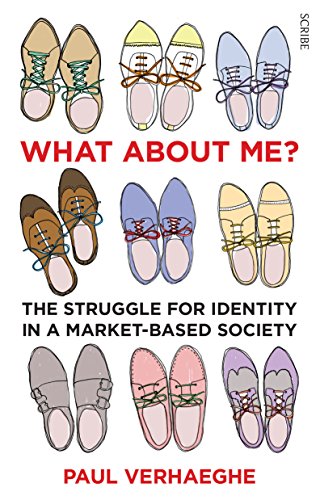
I suppose that Paul Verhaeghe adds another piece of the puzzle by discussing how neoliberalism manifests itself on an individual level, in terms of our identity.
One of the extraordinary aspects of neoliberalism is the doctrine—which goes far beyond economics—that the natural form of human organisation is extreme competition and individualism.
This doctrine holds that individualism is not just natural but also good, and should be encouraged. Supposedly, any effort of people to organise in combination with each other to create a better world disrupts the natural functioning of what is called ‘the market’, which is a sorting system for deciding who the winners should be and who the losers should be. If you disrupt the market, then the wrong people are identified as the winners, and the wrong people become the losers.
“The state of nature (as Hobbes would have called it) for human beings is the exact opposite of what he proposes: we have to work together to survive.”
So, it’s an intensely moral doctrine, but one founded on a complete misconception of human nature. It’s a Hobbesian worldview. And when Thomas Hobbes formulated his philosophy in 1651—the notion that we’re engaged in a war of every man against every man, and that in the state of nature our lives were solitary, poor, nasty, brutish and short—it was understandable because he’d just witnessed the English Civil War in which a high proportion of the men in England were killed. His understanding of human evolution was limited to the book of Genesis, and he subscribed to the doctrine of Original Sin.
So, while it was understandable in 1651, it is completely unsustainable in the twenty-first century in which we see an extraordinary conjunction of neuroscience, social science, anthropology, psychology, and evolutionary biology all pointing us in the same direction which is that we are, in the words of an article in Frontiers in Psychology, ‘spectacularly unusual when compared to other animals’, in that we are fantastically altruistic and socially minded.
The state of nature (as Hobbes would have called it) for human beings is the exact opposite of what he proposes: we have to work together to survive. Here we were in the African savannahs, the slowest and weakest of all the large mammals, living in a world of horns and tusks and fangs and claws. The only way we survived was through extreme reciprocity and mutual aid. That is deeply implanted in our psyches. We have an innate tendency to help each other, and we prosper by doing so.
So, neoliberalism is founded on a complete myth. But it’s a myth that has been very successfully propounded through the media and by the government. It’s a story which we keep being told until we start telling it to ourselves, and imagining that this is how it ought to be.
But it turns out, as Verhaeghe demonstrates, that we can’t actually live like that. If we tell ourselves we are lone rangers, sole traders, self-made men and women living in complete isolation, our psyches collapse and we end up with epidemics of mental health problems. We end up simply being unable to sustain our inner lives. This leads to a whole series of social phobias, obsessive compulsive disorders, anxiety disorders, eating disorders, and self-harm. We see that—as happens so often in societies—it is children that bear the brunt of social trends.
We’re now seeing in Britain, for example, what appear to be epidemics of mental health problems amongst children. When you look at the admissions of children to Accident and Emergency departments because of self-harming, the levels of eating disorders, and the complete inability to find beds for children with severe mental health problems, you see that something bad is happening. What Verhaeghe proposes is that we have internalised the neoliberal narrative and it simply does not work for us.
Verhaeghe describes meritocracy as ‘the loincloth of neoliberalism’. Thinking about children internalising neoliberal attitudes, do you think that Theresa May’s plans to revitalize grammar schools are just going to exacerbate the problem?
I think that’s right. Interestingly, by the time Hayek came to write his book The Constitution of Liberty, he had completely given up on the idea of meritocracy. He simply equated wealth with merit. It didn’t matter how you acquired that wealth—whether you inherited it, or whether you or your parents stole it. The fact of being rich was a demonstration of merit, and the rich should be unimpeded in the way they wanted to live because they would be the scouts or pioneers who would show everybody else how to live.
It’s interesting that, as the doctrines of neoliberalism evolved, their purpose became more and more transparent. Originally, neoliberals claimed that they wanted a meritocracy as a justifying rhetoric. But in fact, the last thing they wanted was a true meritocracy, as that would threaten the very rich.
There were billionaires funding the neoliberal international all over the world to huge amounts: setting up think tanks to promote it, establishing academic departments and sponsoring academics, and promoting it through their newspapers. What they wanted was an unassailable position for the very rich. They wanted the very rich to be able to detach themselves from the demands and constraints of democracy.
Similarly, the last thing Theresa May wants is a true meritocracy. Yet there are elements of the original neoliberal doctrine which still run through modern neoliberal ideology. These say that we have to create elite educational institutions in order to discover merit in people. And, of course, this sets up almost impossible expectations for a lot of children, pressure to which no child should be subject. This is a factory style of education where children, having been rescued from the looms of the cotton towns, are now forced to a similar system of absurd working hours and all the devastating complications that arise from that. And we’ve ended up creating severe mental health issues.
“If we tell ourselves we are lone rangers, sole traders, self-made men and women living in complete isolation, our psyches collapse and we end up with epidemics of mental health problems.”
One of the interesting points that Verhaeghe makes is that neoliberalism was supposed to free us from the stifling control of bureaucracy, but that it has had the opposite effect. This is because, in order to discern merit, you have to have total monitoring and surveillance.
So, in the workforce, if you want to establish who are the most productive workers, you have to keep tabs on them at all times. There has to be constant quantification and assessment, which requires constant monitoring and micromanagement. If you look in any public service, for example, you will see people being absolutely crushed by this stifling regime of micromanagement. It’s the same in much of the private sector as well. Well, so much for freeing us from bureaucracy…

Buy
You hinted that we need an alternative to neoliberal ideology. Does Kate Raworth’s Dougnut Economicsprovide such an alternative?
Doughnut Economics takes us quite a long way towards redeeming some of the economic issues that we’re talking about and, at the same time, ensuring that the better distribution of wealth and social justice does not destroy the living world on which we depend. That is, it tries to reconcile the environmental vision with the vision of widely shared prosperity.
What she has done is quite literally to redraw economics. She starts by saying that the diagrams around which we base our economic imagination are simply wrong. They do not describe the world in any of the ways in which it really works. They exclude huge sectors such as, for instance, the economics of the home and the work of women. They exclude the living world and see any damage that we do to the living world as merely an ‘externality’.
Get the weekly Five Books newsletter
Raworth rejects the old circular flow diagrams that are central to mainstream economics. She argues that we need to show that we depend on energy inputs and materials from the natural world, for example, which circular flow diagrams don’t demonstrate. And we need to show all the different spheres—state, commons, household and market—and how they interact with each other.
From there, she says we’ve got to decide what economics is for. One of the important points she makes is that economics has lost its goals. It claims to be just a description of human behaviour, yet it has got all sorts of hidden agendas, many of which are hidden from economists themselves.
Of course, even taken as a description of human behaviour, economics is generally a very bad one. Most economists have a woeful misconception of human behaviour. An extreme example is their model of people as homo economicus: self-maximising man just pursuing his own interests at the expense of everybody else. That’s simply not how human beings work.
By contrast, Raworth says economics should have an agenda and the agenda should be to create a better life for everyone, without destroying the living world on which we depend. And if creating a world in which all can thrive without exceeding natural limits is the purpose, then let’s draw that.
“What she has done is quite literally to redraw economics.”
So, she creates this doughnut diagram whose outer ring is the planetary boundaries that we shouldn’t cross if we—and our descendants—are to have a good and prosperous life and if we are to allow other species to live on earth alongside us. The outer ring is constituted by factors identified by a group of scientists, such as biodiversity loss, ocean acidification and climate change.
The inner ring of the doughnut is the social floor below which we shouldn’t fall. This inner ring is described by sustainable development goals. So, we should all have decent quality of housing, water, education, political voice, and so on. We should live within the safe and just space between the two rings.
Now, there’s a lot more work to be done to explore how this is going to be realised, but she has made a very good start.
One suggestion that Raworth makes it to replace the idea of ‘the tragedy of the commons’ with the idea of ‘the creativity of the commons’. What does that mean?
The commons is an essential sphere that is routinely overlooked by economists. It’s quite hard to define. It’s neither the state nor the market. Rather, it can be thought of as a particular set of assets, the people possessing those assets, and the rules that those people develop in order to manage those assets cooperatively.
So, the commons is not just the pasture, the coral reef or the free software that you and your group of friends and neighbours might be managing together and surviving from, but it’s also you and your group of neighbours, and the common rules that you have developed to manage those things.
“We should create new commons.”
The commons have been greatly maligned in all sorts of ways but particularly by the doctrine of ‘the tragedy of the commons’, formulated by Garrett Hardin in 1968. This doctrine proposes an entirely theoretical situation in which you have pastoralists using some pasture. Every one of them has an incentive to add another animal to their flocks because they get the full benefit of that animal, but the commons as a whole loses as a result of overgrazing.
Well, that’s not how it actually happens in the real world. Had Hardin had any experience of the real world, he would have recognised that. I saw this myself in Turkana district in northern Kenya. The commons are extremely closely regulated by the people who keep their animals on them. This directly speaks to Hardin’s example because this is a pastoralist society.
If somebody came into the commons and started grazing their animals without the permission of the elders, and without an allocated pasture right, in the first instance they’d be driven off with sticks. In the second instance, they’d be caught and tied to a tree and beaten with sticks. In the third instance, they’d be killed.
This was an extremely closely-regulated situation because on those regulations people’s survival depended. If the commons were overgrazed, everyone would die of starvation, which is what Hardin predicted. But it doesn’t happen there because of that regulation.
Elinor Ostrom has demonstrated repeatedly over many years just how false this picture was. But it was one of those convenient arguments—like those that appeal to the Kuznets curve—which was used by people who wanted to enclose the commons and grab common wealth in order to enhance their personal fortune.
How can we do justice to the creativity of the commons?
I think we have to do several things. One is to defend the commons we already have. A second is to reclaim commons which have been taken from us. That might be everything from our local forests to academic journals which have been seized by one of the most ruthless bunch of privateers in the modern world—groups like Elsevier and Springer.
Thirdly, we should create new commons. In Martin Adams’s book Land: A New Paradigm for a Thriving World there are some very good proposals for how we can gradually and peacefully—in a completely compensated way—take land back into common ownership and control. I think that’s an essential step towards building a more just and environmentally responsible society.
We haven’t discussed the idea of ‘rewilding’, which you explored in your book Feral. Could you tell us about that idea?
If we are to confront the current environmental crisis, we need a positive vision as well as visions of doom. And rewilding is one of those positive visions.
Rewilding envisages a mass restoration of ecosystems in places where we can do that without greatly impinging on human welfare and in ways which could greatly enhance human welfare.
To give one example, in Britain there are vast areas that are grazed extremely unproductively, with only one or two sheep per hectare. There are roughly four million hectares of upland sheep grazing in Britain which is roughly equivalent to the amount of land we use for all arable and all horticulture production. And yet, it produces just one per cent of our food.
This is grossly misused land. And it’s only sustained through agricultural subsidies. This is a terrible misuse of public money and I believe that that money would be much better spent paying the same people to restore that land, to bring back trees, to bring back our missing wildlife, and to make magnificent habitats once more. People would then wish to visit these habitats, and we could create a new economy around that.
Again, at sea, there is overfishing almost everywhere. We could create large marine reserves in which no fishing takes place. These could then become the breeding grounds which enhance the fishing industry, as well as creating wonderful marine ecosystems which large numbers of scuba divers, recreational anglers, and whale watchers would want to visit, again creating a new economy.
Interview by David Shackleton
Five Books aims to keep its book recommendations and interviews up to date. If you are the interviewee and would like to update your choice of books (or even just what you say about them) please email us at editor@fivebooks.com
Climate Change Nature & Environment Politics & SocietyCapitalism
Support Five Books
Five Books interviews are expensive to produce. If you've enjoyed this interview, please support us by donating a small amount, or by buying some of our most recommended books from Amazon. Since we are enrolled in their affiliate program, we receive a small percentage of any product you buy, at no extra cost to you.
$5
$10
$20
$50
Other
BOOKS BY GEORGE MONBIOT
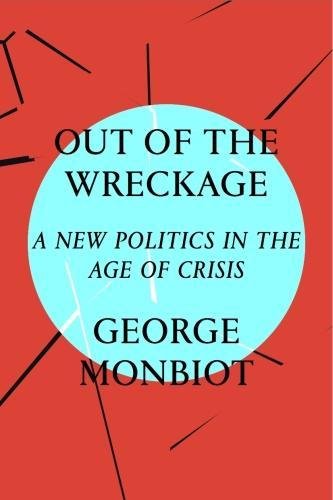
Out of the Wreckage: A New Politics in an Age of Crisis
by George Monbiot

How Did We Get Into This Mess?: Politics, Equality, Nature
by George Monbiot
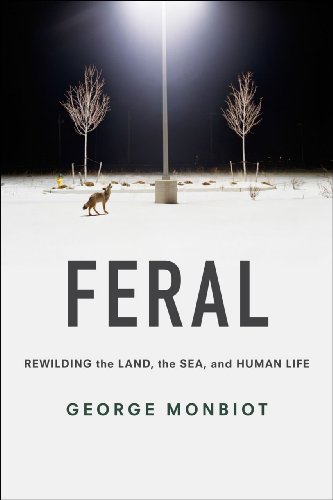
Feral: Rewilding the Land, the Sea, and Human Life
by George Monbiot
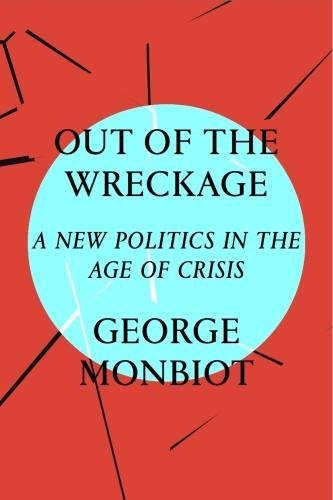
Out of the Wreckage: A New Politics in an Age of Crisis
by George Monbiot
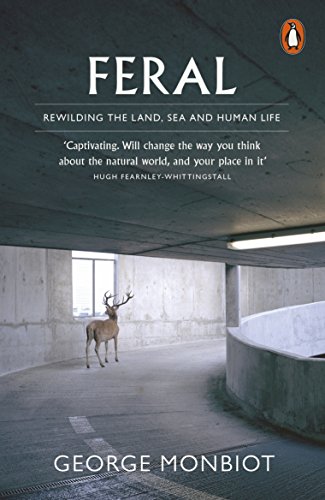
Feral: Rewilding the Land, Sea and Human Life
by George
Monbiot


.JPG)
.JPG)
.JPG)
.JPG)
.JPG)
.JPG)
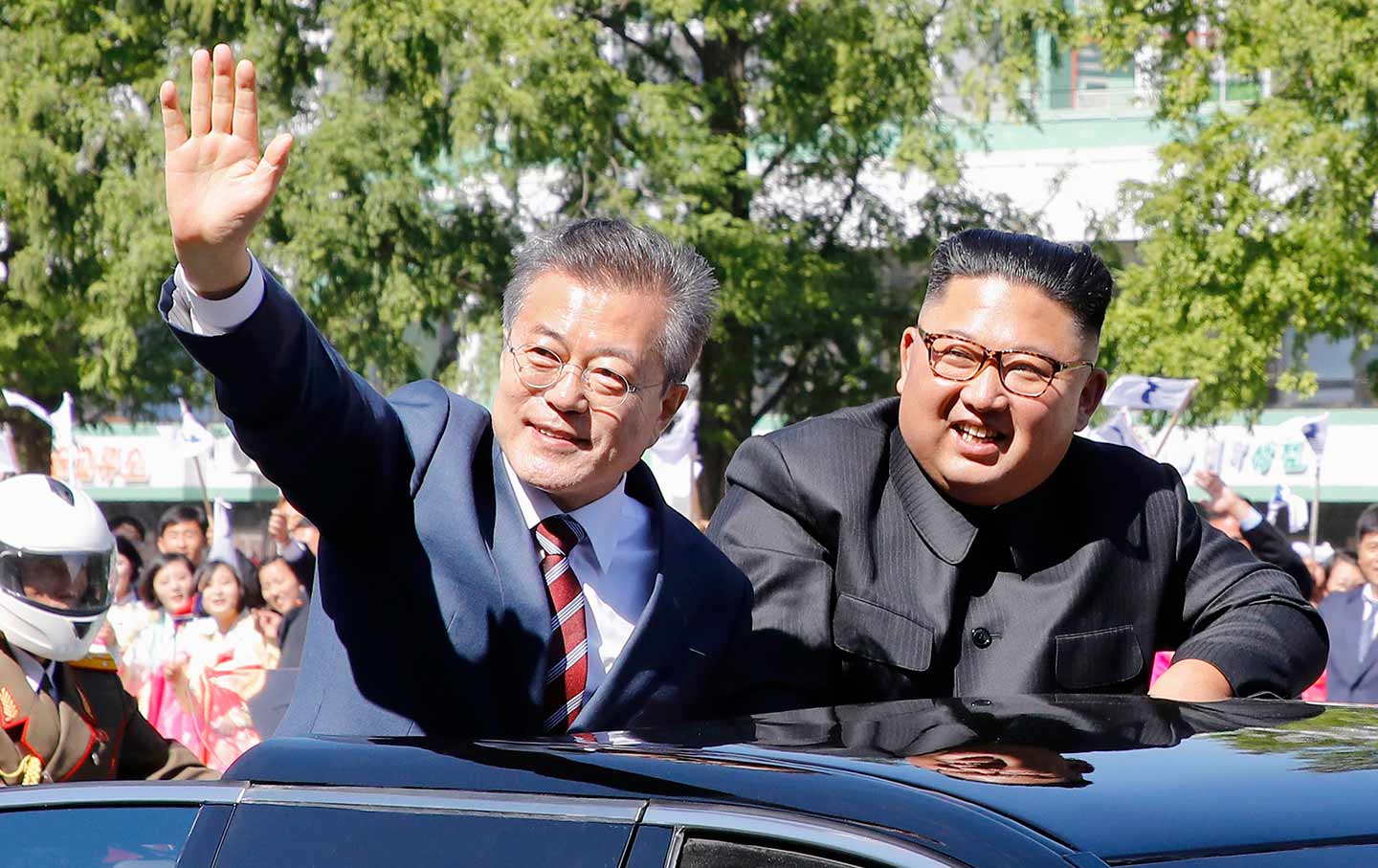


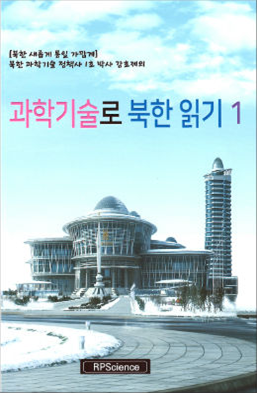
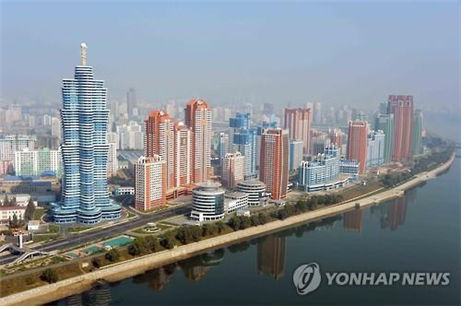
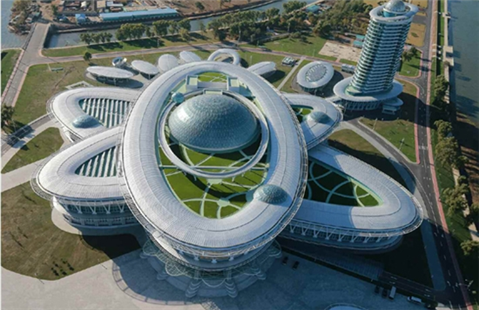
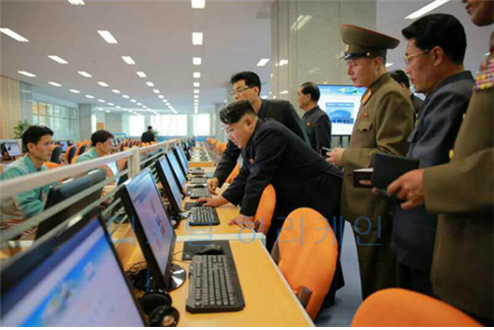


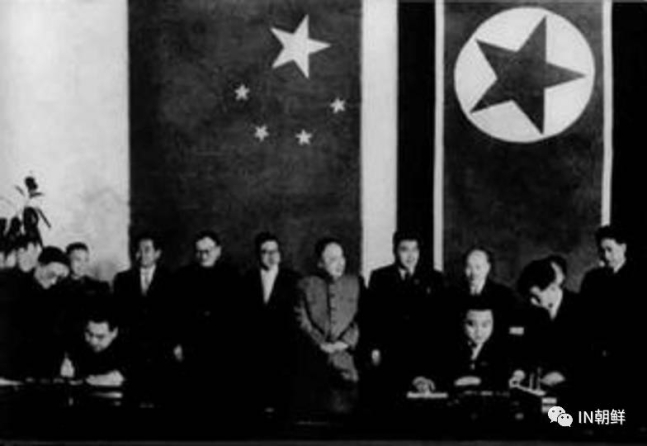 1950년 10월 19일, 압록강 도하로 시작된 중공군의 한국전쟁 참전은 전세를 역전시켰다. 1953년 7월 27일, 유엔군, 북한과 중공군의 대표들이 정전협정에 서명해 전쟁은 끝났지만, 군사분계선 이북에는
1950년 10월 19일, 압록강 도하로 시작된 중공군의 한국전쟁 참전은 전세를 역전시켰다. 1953년 7월 27일, 유엔군, 북한과 중공군의 대표들이 정전협정에 서명해 전쟁은 끝났지만, 군사분계선 이북에는 
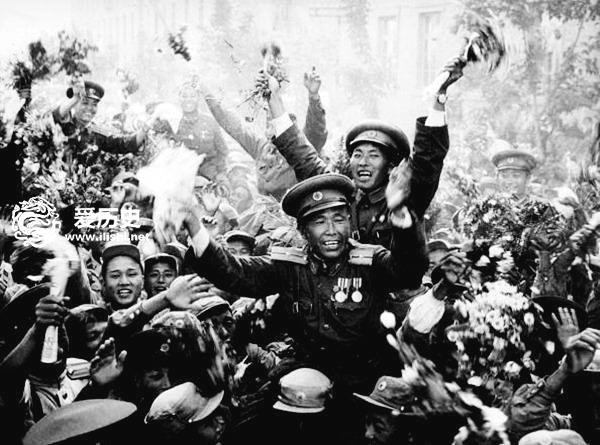
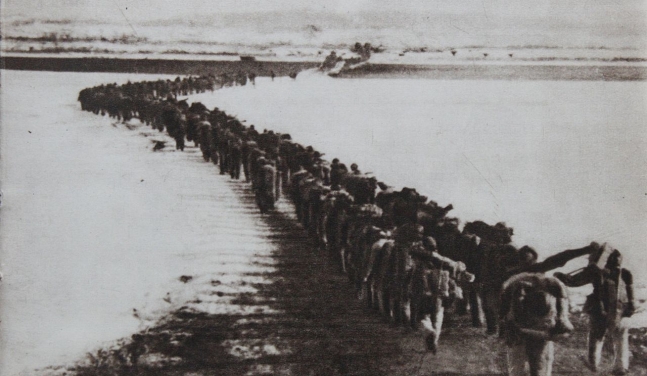 그러던 중 1958년에 중공군은 북한과 아무런 협정이나 상호방위 조약 체결하지 않은 채 갑작스럽게 일방적으로 나머지 15개 사단의 철수를 진행하였다.
그러던 중 1958년에 중공군은 북한과 아무런 협정이나 상호방위 조약 체결하지 않은 채 갑작스럽게 일방적으로 나머지 15개 사단의 철수를 진행하였다.